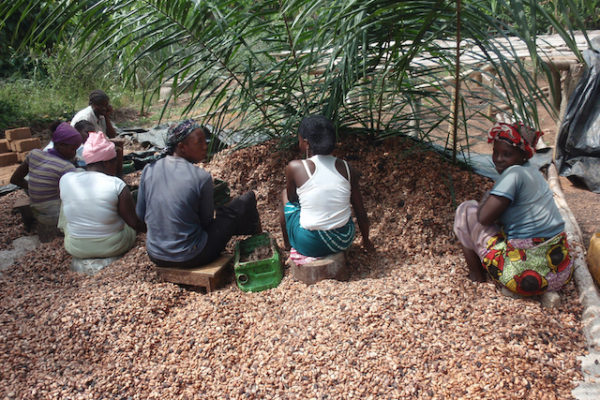Time is not on our side for delivering tangible change for cocoa sustainability in Ghana and Ivory Coast

Building on last week’s news of events within the cocoa sector, sustainability is once again making major headlines with regard to a landmark new declaration relating to key markets in Ghana and Ivory Coast.
This latest letter, from a combined total of 350 environmental, human rights and NGO groups has urged the two West African nations to ensure that farmers directly gain a fair share of an export premium that is being levied on confectionery companies to prop up the deflated prices of cocoa, and help raise workers out of the poverty that so many of them have found themselves subject to within the agricultural sector.
The latest plea to the region’s authorities, which also centres on major ongoing issues of child labour within the sector and damaging deforestation, comes amid a similar drive from The Federal Association of the German Confectionery Industry (BDSI), which has also highlighted the extent of conditions faced by many agricultural workers. It’s a fairly straightforward equation – unless farmers are supported to a far greater degree financially than they presently are, then the future of the cocoa industry serving the confectionery sector remains seriously in doubt.
As not-for-profit groups such as Mighty Earth have pointed out, it is commendable that the confectionery industry has engaged on the issue, most notably with the Cocoa and Forests Initiative first unveiled at the end of 2017.
But with statistics for the following year revealing both Ghana and Ivory Coast having the highest increases in deforestation after such a key agreement has been launched is hard to fathom. It’s surely a situation that any of the businesses who signed up to that set of protocols would be unhappy to see – and in the view of many observers, requires direct, on-the-ground action, rather than further legislative amendments.
Clearly, as the Ivory Coast government has stated, this a hugely complex situation in a country that has only gained its full independence in the last 60 years, yet sadly, these decades, like in many regions around the world, have been marked by significant environmental issues as the nation, as has been highlighted by a number of organisations, is lacking in sufficient land ownership and management structures to deliver the kinds of changes that the sector has been seeking to deliver.
It’s a situation that is deeply concerning to many, and as farmers active in the industry have noted to ourselves here at Confectionery Production, this is a scenario that can no longer continue to play out if the world wants its chocolate industry to survive as it is now. With over 80% of both Ivory Coast’s and Ghana’s forests now depleted largely because of the cocoa industry over the past six decades, time is fast running out to enact the major changes required.
- Neill Barston, Confectionery Production editor. Keep in touch via email: [email protected] and social media: @sweetsnsavoury or @confectionprod



